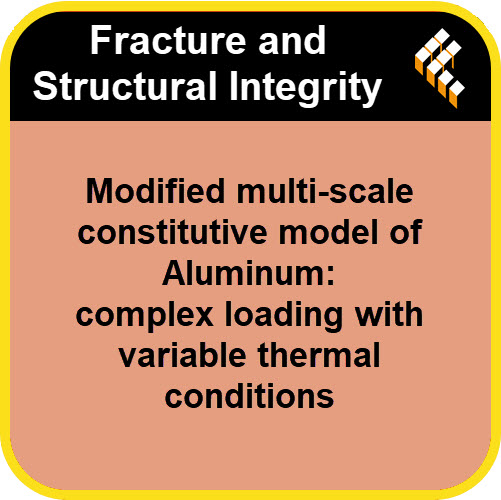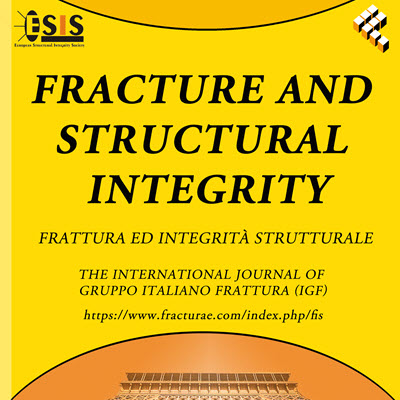Fracture and Structural Integrity: The Podcast
Stay at the cutting edge of fracture mechanics and structural integrity research with the official podcast of the Fracture and Structural Integrity journal. Join us for insightful interviews with top researchers, in-depth discussions of groundbreaking papers, and explorations of emerging trends in the field.
RSS Spotify YouTube Amazon Music
Modified multi-scale constitutive model of Aluminum: complex loading with variable thermal conditions
2025-11-19
https://www.fracturae.com/index.php/fis/article/view/5693
During manufacturing of parts from metals and alloys through forming and subsequent thermal and mechanical treatments the materials are often subjected to complex loading. In such cases materials significantly change their structure, which determines the operational characteristics of a finished product. Therefore, for digital design of technological processes aimed at improving the functional characteristics of products, it is promising to develop mathematical models that adequately describe the material structure evolution during forming, thermal and mechanical processes including complex loading. This work considers the previously developed two-level constitutive models of aluminum under complex loading accompanied by temperature variations. The model parameters were calibrated to the experimental data of simple shear loading of aluminum specimens. The resulting deformation curves for aluminum subjected to simulated reversed simple shear loading with temperature variations, as well as loading involving strain-path changes, correspond well to the experimental data. The observed effects arising under the considered complex loading conditions are explained through analysis of the obtained description of the intragranular dislocation slip mechanisms. The study results demonstrate the applicability of multilevel constitutive models for comprehensive descriptions of the effects observed in the material during thermal and mechanical treatments.
DownloadFiletype: MP3 - Size: 2 MB - Duration: 11:59m (320 kbps 44100 Hz)
Powered by Podcast Generator, an open source podcast publishing solution | Theme based on Bootstrap
